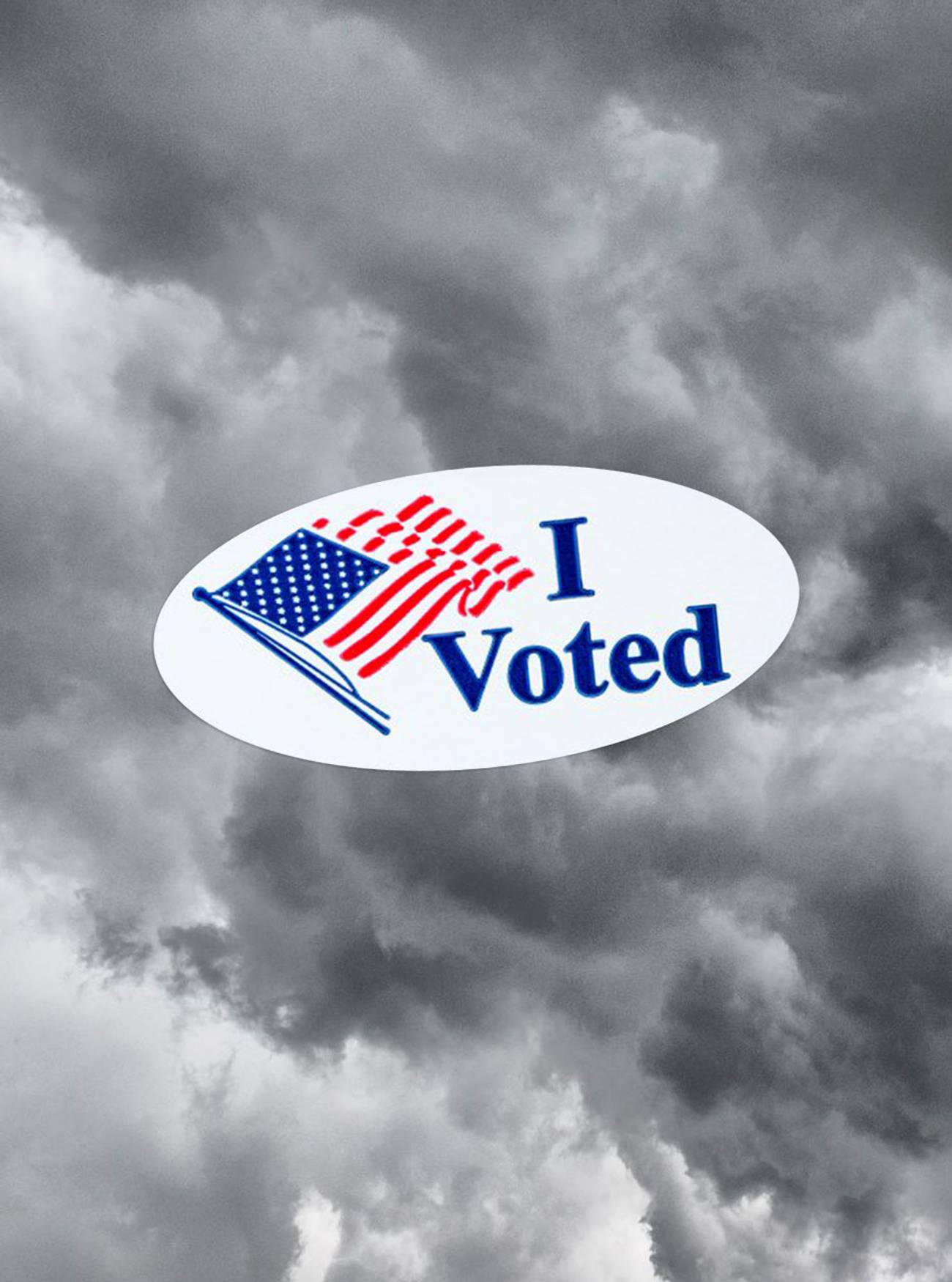My Vote
The experience of voting on Election Day felt like part of an ongoing national crackup that isn’t close to over




On the morning of Election Day I joined the long line at my local polling place with my mail-in ballot in hand. At a quarter to 7, in a small town just outside Philadelphia, it was blistering cold with an uncomfortable wind and a clouded sun, but there had been chatter of mail-in ballot issues in my home state over the past several weeks, and if I wanted the vote to count there was some kind of reassurance (a rare sensation these days) if I went to the poll to cast it myself. A reassurance of what, exactly, I didn’t know. That there were still social institutions functional enough to keep the lights on above us, even as each day our civic structures, strained by the pandemic, seemed to reveal more evidence that the beams were buckling and the walls crumbling to pieces: Our press was broken, our health care system a failure, our economy a sham for the millions sliding ever closer or ever deeper into poverty. Everything that made Donald Trump such an appealing candidate to his base had seemingly only gotten worse. What confidence could be gained by scribbling ink on a sheet of paper behind a curtain?
There were others like me, I discovered. “I just didn’t trust it anymore,” one woman said, shivering beside her husband, both queued up to surrender their mail-in ballots. I nodded understanding and we directed one more newcomer to the other side of the parking lot, the correct line for their respective ward. Standing behind us a young woman wearing headphones had caught word of what we said and realized she’d waited 30 minutes for the wrong poll. It wasn’t her fault as there were no signs posted, and no one in an official capacity there to direct traffic, just a few wearing lanyards up front beside the single sign at the door, which kept flying off the stand with each gust of wind. The husband and I watched as the foam board cartwheeled into the side of a parked Toyota. The young woman walked off to join the end of the other line. “Our government at work,” he said.
Shuffling up to the polls, which were being administered beside a grocery store in a long-vacant local bank, the adhesives which held up the bank’s logos still stuck to the walls behind the teller counter where poll workers now lingered, the process had a surreal, subdued quality to it. We were a few hundred masked up in surgical blue or homemade cloths, saying little to each other, many of us gathering in a public way for the first time in several months. Some folks lifted their masks awkwardly for sips of takeout coffee from the coffee shop next door, which had recently reopened after it shut down for a week because they quarantined their staff due to exposure to COVID. A pungent chemical smell wafted up from the bins of perfumed pine cones. The holidays were here. Stacks of generic branded water stood on pallets, as if waiting to be disbursed or perhaps rationed out for whatever new calamity prompted us all to descend upon the store for basic supplies and necessities.
Watching the vote totals trickle in last night, and imagining the two resulting scenarios which seemed to flip back and forth with reports of miscounts or missing ballots or days left of counting still to go, the satisfaction of having cast the vote in person was complicated by the choice of the lesser of two evils, the embarrassment of a nation that can’t even run its own election, the growing unease that even a supposed victory will feel spoiled.
Sean Patrick Cooper is a journalist who has contributed narrative features and essays to The New Republic, n+1, Bloomberg Businessweek, and elsewhere. His first book, The Shooter at Midnight: Murder, Corruption, and a Farming Town Divided will be published in April 2024 by Penguin.